It doesn’t happen very often, but every once in a while, a brand you really love will break your heart.
VW and Loblaws are brands beloved by consumers for decades of quality products and services. Also beloved by marketers for decades of great marketing strategy and advertising campaigns. So beloved that we feel the need to refresh your memory of how they broke our collective hearts.
Volkswagen Emission Scandal Refresher
in September, 2015, VW Group (VW) admitted it had installed software in its diesel-powered vehicles that acted to defeat emission standards [1]. This was after the US EPA began investigating a May, 2014, study that first reported much higher emissions from VW models tested outside the laboratory—meaning on real roads. After 16 months of diversion and stalling [2], VW’s admission of guilt came four days after the EPA issued a notice of violation—which would have meant a halt to all new vehicle sales in America.
Worldwide, 10 million vehicles from five model years were affected. So far, VW has paid $35bn USD in reparations [3], which have been a combination of repair, vehicle buy-back and compensation to owners for reduced resale value. More is to come because agreements have not been made with government authorities in all affected countries, nor have all consumer-based class-action law suits been settled or dismissed. VW pleaded guilty to criminal charges in multiple jurisdictions. At least 20 senior VW executives have resigned, been fired or faced financial penalties and/or legal proceedings to date.
George Weston/Loblaws Bread Price Fixing Scandal Refresher
Employees of Loblaws and George Weston Ltd (Weston) first informed Canada’s Competition Bureau of packaged bread price fixing activities by their companies (and presumably others) in 2015 [4]. In late October, 2017, the Bureau executed search warrants at Weston and Canada Bread [5] offices. This was when the latter two companies first learned of the whistle-blower accusations. In November, 2017, Weston agreed to co-operate with investigators in exchange for immunity from prosecution. The next month, it launched a $25 off coupon offer to all customers (all Canadians) as part of a public mea culpa, for a total cost to Weston of $111M [6]. ‘Co-operation with investigators’ meant naming retail and wholesale competitors as co-conspirators—accusations which the latter have denied.
By some estimates, price fixing resulted in Canadians paying at least $1.50 more for a loaf of bread [4] from the ‘participating retailers’ over a 14-to-16-year period, for a total of $5bn [7]. To date, no charges have been made and no fines have been levied. The Bureau’s investigation is still on-going but Weston companies are not part of it due to their plea deal. Multiple class-action law suits have been filed against accused parties, including Weston companies.
VW, Post-Heartbreak

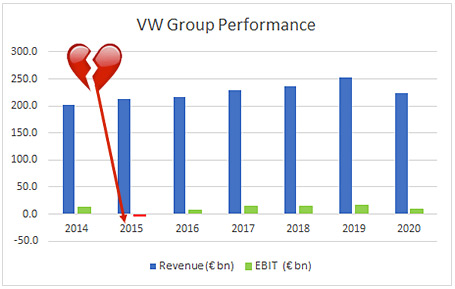
In 2016, VW announced a major strategy shift away from internal combustion engines to electrification. For past and new customers, this served as a pivot away from the diesel problem. It also forced the company to speed up a changeover that is clearly necessary for long-term profitability.
Loblaws, Post-Heartbreak
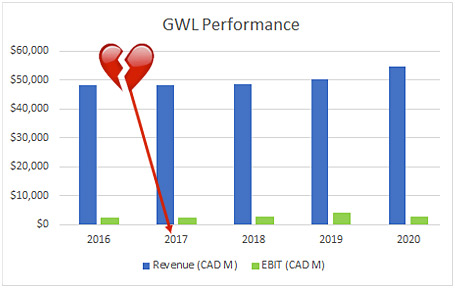
The Brand Lesson
These two examples indicate that strong brands can survive serious scandal if the companies behind them act reasonably after their misdeeds are discovered. Consumers are smart enough to understand two key concepts:
- A brand is something more than the company that makes it.
- The people who made the decisions resulting in the VW and Weston scandals are not the same people that build your cars, bake your bread or service you directly. Plenty of innocent employee hearts were broken too.
Consumers treat beloved brands the same way they treat beloved people. The fallen loved one can be forgiven if they show contrition and demonstrate they are still capable of what made us love them in the first place. An interesting piece of recent research corroborates this theory [11] but makes the interesting point that compensation is the single most important thing an offending brand must get right.
One of our examples defies this last point. VW has paid 3x its annual operating income in compensation [12]. Weston has paid just 5% of annual operating income and none of its senior executives were shown the door. Different relative levels of compensation/punishment for the same result.
Theses scandals are different in many ways, but both brands have recovered. In the US, only 62% of affected diesel owners sold their cars back to VW [13]. In Canada, uptake on Weston’s $25 coupon was at the low end of the company’s expectations. To our great surprise, consumers have gotten over their beloved brand heartbreaks. Maybe brand trust is different than brand liking. Or maybe (brand) love is blind.
- Software code allowed engines to meet emission standards in laboratory test settings. In normal driving conditions, engines surpassed emission standards (up to 40x and more) to achieve greater performance and efficiency.
- “Hard NOx”, Season 1, Episode 1 of Netflix documentary series “Dirty Money”, Jan 26, 2018.
- Geoff Colvin, “5 years in, damages from the VW emissions cheating scandal are still rolling in“, Fortune, Oct 6, 2020.
- Aleksandra Sagan, “Bakers, grocers involved in 16-year price-fixing conspiracy: Competition Bureau”, The Canadian Press, Jan 31, 2018.
- Canada Bread is a competitor to Weston’s bakery business. It was owned by Maple Leaf Foods until 2014, Grupo Bimbo after that.
- Registration for the $25 coupon ran from Jan 8, 2018 to May 8, 2018. Weston’s 2018 Annual Report states total uptake resulted in a $111M cost, which is expected to be “an offset against civil liability”.
- Susan Krashinsky Robertson, “Court gives go-ahead to class-action lawsuit over bread price fixing”, The Globe and Mail, Jan 6, 2022.
- River Davis & Tsuyoshi Inajima, “Volkswagen Loses Title of World’s Top-Selling Carmaker to Toyota”, Bloomberg, Jan 27, 2021.
- VW Group annual reports.
- Wall Street Journal Markets trend report for George Weston Ltd.
- Johanna Eckerbom, Frida Andersson & Johanna Allard, “When Brands Break Consumers’ Hearts: How to Earn Consumers’ Forgiveness after a Brand Betrayal“, Lund University, Jun 4, 2020.
- Calculated as total reported compensation vs the average operating income (EBIT) of the the three years preceding the scandal.
- Eric C. Evarts , “VW bought back 300,000 cars after its Dieselgate scandal—and now they’re sitting in 37 parking lots around the US”, Green Car Reports, Apr 18, 2018.
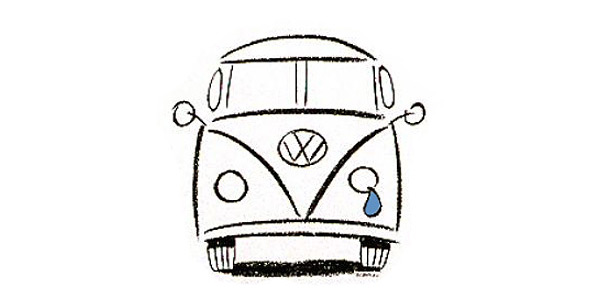
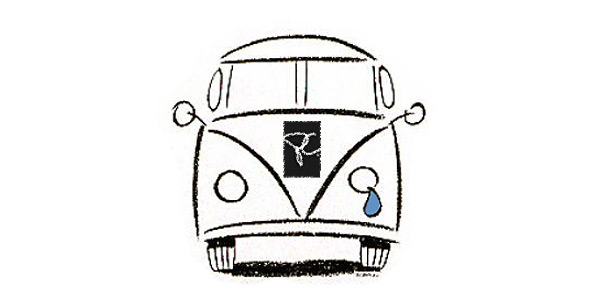
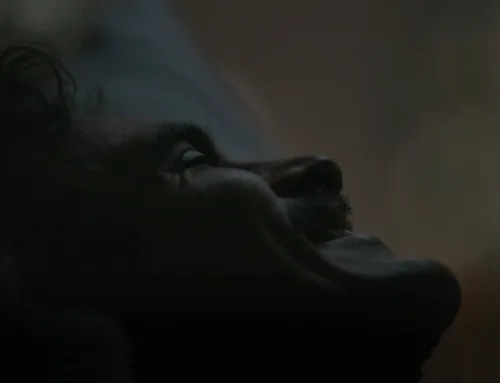
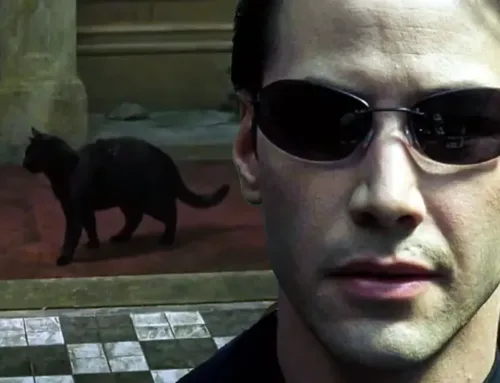
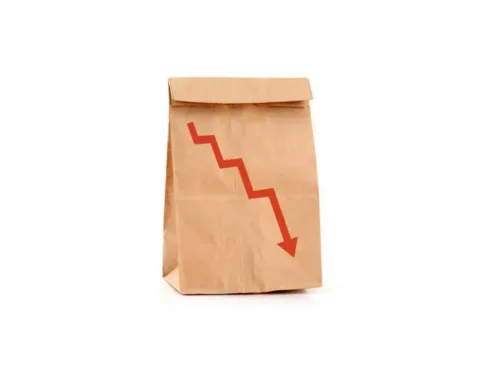
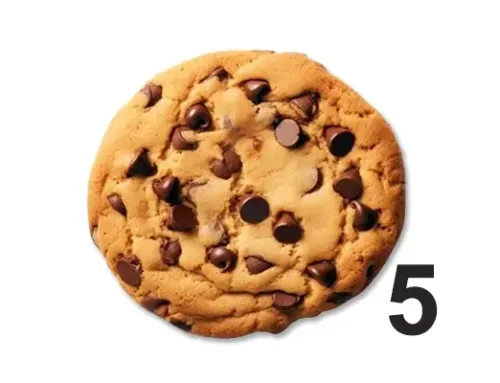
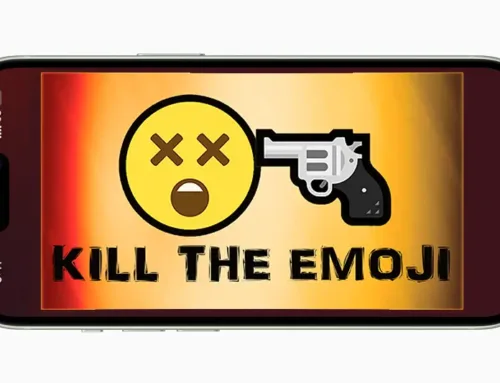
Great post Bob
Justice moves slowly and unevenly.
For Weston: https://www.theglobeandmail.com/business/article-bread-price-fixing-settlement-grupo-bimbo/
For VW: https://www.theglobeandmail.com/business/international-business/article-former-audi-boss-rupert-stadler-becomes-first-volkswagen-board-member/